This fall, the Harvard Law School Library hosted its ongoing series of book talks by Harvard Law School authors, with topics ranging from breaking the Constitution to saving the news. As part of the series, faculty and HLS-affiliated authors from various disciplines shared their research and discussed their recently published works with the Harvard Law community. Sponsored by the library since 2014, the talks continued to be held virtually this year.
Here are some of the latest from HLS authors to add to your reading list over the holiday break.
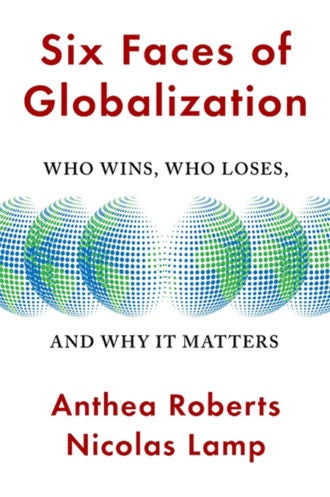
Six Faces of Globalization: Who Wins, Who Loses, and Why It Matters
Anthea Roberts and Nicolas Lamp
In “Six Faces of Globalization: Who Wins, Who Loses, and Why It Matters,” authors Anthea Roberts and Nicolas Lamp liken the debate on globalization to a Rubik’s cube. They outline six of the major narratives for and against the economic phenomenon, and show how those arguments can be combined and rotated to accommodate different sides of the political spectrum.
During the book talk (which was co-sponsored by the Harvard Law School Library, International Legal Studies, and East Asian Legal Studies) a distinguished panel (moderated by William Alford ’77, Jerome A. and Joan L. Cohen Professor of Law) took their turns on the metaphorical “cube” to critique the book and different aspects of globalization’s discontents, followed by responses from the two authors. Read more
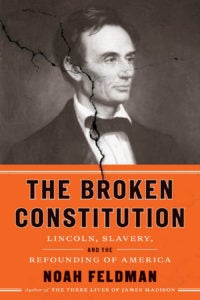
The Broken Constitution: Lincoln, Slavery, and the Refounding of America
Noah Feldman
Can, or even should, Americans “break” the U.S. Constitution when, in their view, justice demands it? According to HLS Professors Nikolas Bowie ’14 and Noah Feldman (the book’s author) that question, which President Abraham Lincoln confronted as he fought a war to end slavery, is very much alive today.
In his recently released book, “The Broken Constitution: Lincoln, Slavery, and the Refounding of America,” Feldman argues that the charter, originally drafted in 1787, was repeatedly violated and ultimately remade by America’s 16th president. Winning the Civil War, he says, required an initially reluctant Lincoln to ultimately shred and replace the antiquated agreement, which was fatally infected by its animating compromise to preserve and extend the institution of slavery, a practice even most framers admitted at the time was morally repugnant. Read more
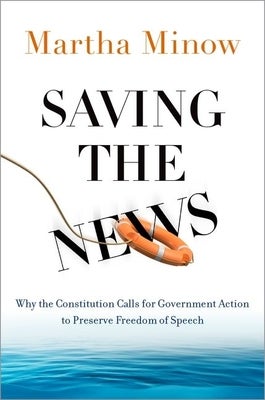
Saving the News: Why the Constitution Calls for Government Action to Preserve Freedom of Speech
Martha Minow
Explaining the impetus for her new book, “Saving the News: Why the Constitution Calls for Government Action to Preserve Freedom of Speech,” an argument for reforming and supporting America’s fourth estate — a critical part of our democratic system, Martha Minow, the 300th Anniversary University Professor and former dean of Harvard Law School, said: “I’m worried about democracy.”
During the book talk, which also featured Vicki C. Jackson, Laurence H. Tribe ’66 Professor of Constitutional Law, and Nikolas Bowie ’14, assistant professor of law, Minow and her co-panelists discussed the declining health of the news landscape, social media’s role in that decay, and the need to fortify the press to protect democracy.
“A political order controlled by the people needs people who are informed” about the world and issues on which they are voting, said Minow, adding that the country’s founders had considered the press so vital that it is the only private industry mentioned in the Constitution — the First Amendment, to be precise. “The presumption is it would [continue to] exist,” she said, yet today, “half of local communities now have only one — if any — news source.” Read more
The American Journal of Law and Equality
Randall Kennedy, Martha Minow, and Cass Sunstein ’78, editors
In February, three Harvard Law School professors — Randall L. Kennedy, the Michael R. Klein Professor of Law; Martha Minow, the 300th Anniversary University Professor; and Cass R. Sunstein ’78, the Robert Walmsley University Professor — teamed up with MIT Press to launch The American Journal of Law and Equality, a new journal to be led and edited by the HLS professors, with a focus on legal issues involving equality and discrimination in all their forms.
Citing the host of legal questions related to equality — from the Equal Protection Clause, civil rights laws and the criminal justice system to matters of economics, environmental justice, safety and health, and tax — Sunstein said: “There is no other journal that exclusively focuses on these issues in the United States from the standpoint of law. And whether you’re on the right, on the left, or on the center, you probably are keenly interested in these things. And it’s really the right time to have a focus journal exploring this.”
For Minow, the goals of the new journal are twofold. “One is to stimulate even more discussion about equality and inequality in the law, both theoretically and practically, in the academy,” she said. “By having a whole journal devoted to this subject, we hope both to inspire more attention, and also promote more debate. And the second is, by making this a faculty-led journal, we can use whatever platform we have to push debates and push efforts forward.”
When they first began discussing the idea last summer, Kennedy’s immediate reaction was “let’s get cracking.” The fact that they’d known each other for years, he believed, would help them get the project off the ground more quickly at a time when the need, he said, was “huge and urgent.”
“This was the summer of the George Floyd moment,” he said. “On the one hand, you have this tremendous upsurge in protest against police misconduct along racial lines. At the same time, we’re in the middle of this pandemic, which has underscored so many racial inequities in America. And we also had the anxiety of the coming election. It seemed the perfect moment for a new effort to explore the question of inequality.” Read more
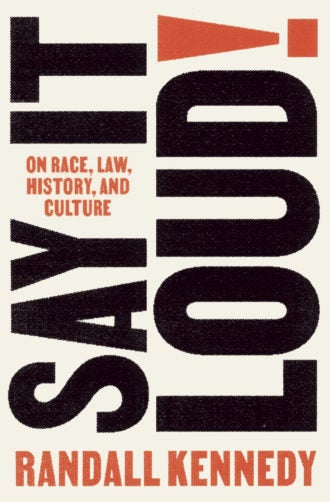
Say It Loud!: On Race, Law, History, and Culture
Randall Kennedy
“I’m extremely critical of the recent attack on critical race theory, because it’s not just an attack on critical race theory — it’s an attack on critical thinking; it’s an attack on thought itself,” said Randall Kennedy, Michael R. Klein Professor of Law. During a wide-ranging discussion about his new collection of essays, “Say it Loud! On Race, Law, History, and Culture,” followed by a question and answer session, Kennedy shared background on a few of his favorite pieces, defended free thought, and spoke about his view on the future of race relations in America. Read more
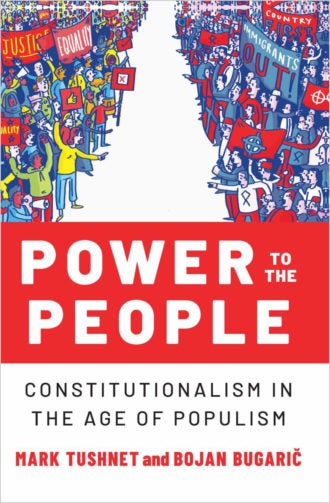
Power to the People: Constitutionalism in the Age of Populism
Mark Tushnet and Bojan Bugarič
Despite the seemingly endless examples of right-leaning populist authoritarian leaders and aspirants at home and abroad, populism is neither inherently conservative nor necessarily inconsistent with constitutional democracy. That is the central theme of “Power to the People: Constitutionalism in the Age of Populism,” by Harvard Law Professor Emeritus Mark Tushnet and Bojan Bugarič, a professor of law at the University of Sheffield. While praising the volume as “important,” “a necessary corrective,” and “an absolutely terrific, terrific book that deserves to be read and discussed,” three fellow scholars raised a series of questions during the discussion that they said could bear further examination. Read more
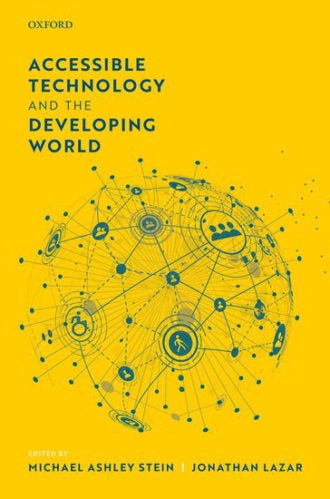
Accessible Technology and the Developing World
Edited by Michael Ashley Stein ’88 and Jonathan Lazar
“Accessible Technology and the Developing World” features contributors from a diverse set of backgrounds — including authors from well-known non-governmental organizations, significant United Nations entities, and universities in both the developing and developed world — who offer recommendations to increase access to technology for the 800 million people with disabilities in the developing world. Digital accessibility “continues to be viewed through a stereotyping lens,” with misperceptions including that people in developing countries are not interested in information and consumer technology, contend the editors (a visiting professor at HLS, Michael Ashley Stein ’88 is co-founder and executive director of the Harvard Law School Project on Disability; Jonathan Lazar is a professor in the College of Information Studies at the University of Maryland). Developing countries need their own solutions to improve access, they argue, and can also generate innovations that would benefit the Global North.
Watch a discussion with the co-editors and three of the volume’s contributors: Amy Landers, Deepti Samant Raja, and Raja Kushalnagar.
